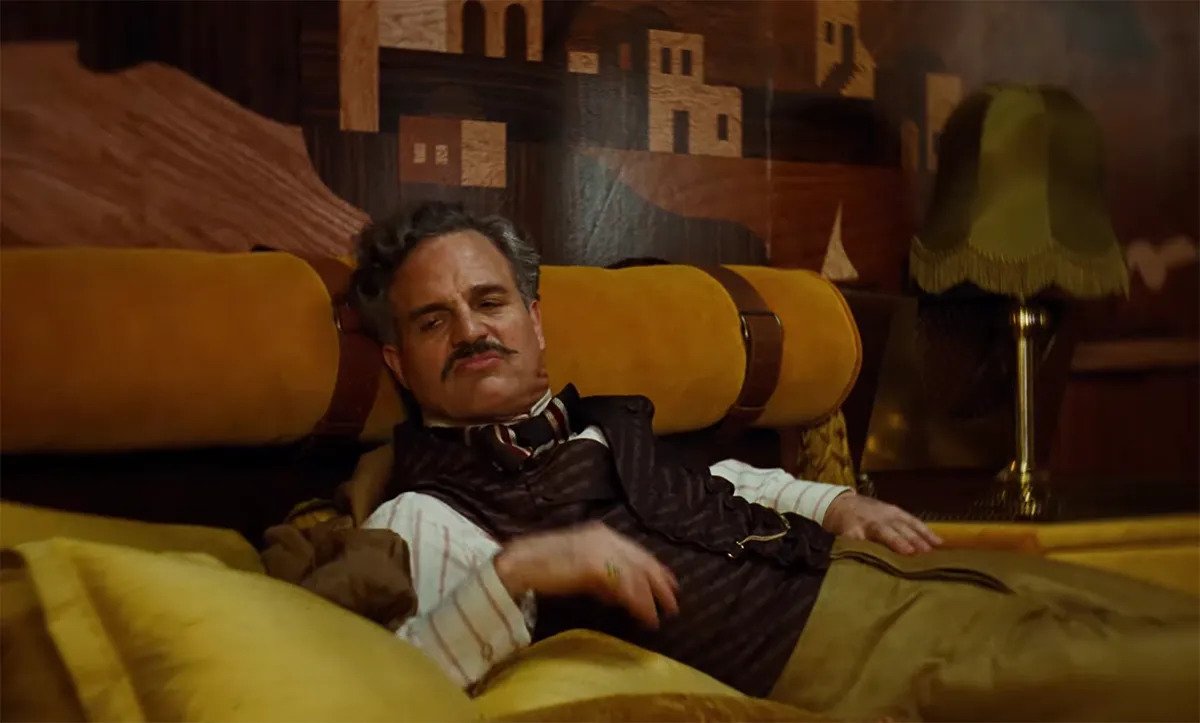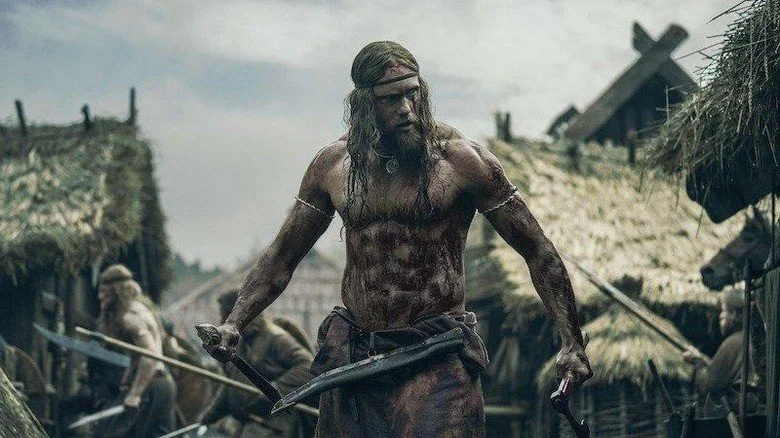Poor Things Review
9/10
I cannot tell you how refreshing it is to see a film like Poor Things in a theater again. It entices that familiar feeling of movie theater magic that is not conjured for me as much as it used to be. I have been a big fan of the director Yorgos Lanthimos since seeing his film Dogtooth. His films have a delicate balance of the darkest of comedy with a surreal atmosphere. I remember when I saw The Killing of a Sacred Deer at the Los Angeles premiere at Beyond Fest and the experience was wonderfully twisted. I could tell some people in the audience were so uncomfortable that they did not know whether to laugh at the morbid events unfolding on screen.
Poor Things is an evolution of his style with a much grander scope. His films previously have been shot in real locations where the stylistic flourishes came from the way they were filmed, and the macabre dark comedy mixed with great character drama. They had a unique way of presenting traditional environments in warped ways, but I did not associate them with being fantastical in nature. Poor Things presents an exaggerated portrayal of Victorian-era London that looks like a steampunk storybook. The visuals often reminded me of those in films by Jean-Pierre Jeunet such as City of Lost Children and Delicatessen. They presented real-life inspired cities in warped and wondrous ways. There is also a visual influence from Terry Gilliam’s fantastic The Adventures of Baron Munchausen.
Poor Things throws us right into the deep end from the beginning with limited setup. We are immediately introduced to Bella Baxter (Emma Stone), a childlike young girl who is the ward of a brilliant and experimental surgeon, Dr. Godwin Baxter (Willem Dafoe). It is soon revealed that Bella was brought back to life by Godwin after she attempted suicide by jumping off a bridge. She was pregnant at the time, and he transplanted the still-living baby’s brain into Bella’s body. Godwin’s new assistant Max McCandles (Ramy Youssef) becomes fixated on Bella’s innocence and soon falls in love with her. The two are soon engaged, though it is not unclear how much Bella even understands what marriage is.
I used to be hit and miss on Emma Stone. I thought she was excellent in comedy roles but tended to overact in drama. It wasn’t until The Favorite that I saw how she could excel at both. Poor Things is easily her greatest performance yet. She embodies Bella in every sense, both emotional and physically. For a substantial portion of the film, she totters on her feet like an infant learning how to use its legs. She talks in a babyish way, barely forming coherent sentences. Her communication is simplistic and she often refers to herself in third person. It is a remarkable performance that creates such a unique and deeply human character.
The way Bella transforms throughout the film is an incredible sight to behold, and Emma Stone does a brilliant job. Bella is forced to stay inside Godwin’s home because he is afraid at how people will treat her and view her. Godwin was a victim of experimentation by his father when he was a child. He bears the scars of years of torment and trauma, yet he always defends his dad’s actions as those of a great scientific mind. He adores Bella, and she worships him. Their relationship comes from a tragic and twisted place, but the love they have for each other is genuine and beautiful despite the awful circumstances.
Willem Dafoe is wonderful as Godwin. He gives the man real pathos and sensitivity. The character could have easily been a generic Dr. Frankenstein knock-off since that is the clear inspiration. Dafoe never plays him as a one dimensional villain. His bond with Bella overcomes the terrible origins of her reawakening. Dafoe has been adamant in a recent interview that Godwin should not be called a mad scientist, and he is quite right. It would be dismissive to refer to him as mad when the character is as soulful and tragic as he could possibly be.
Bella has spent her new life trapped inside, never allowed out except when accompanied by Max and Godwin. Her world is thrown into disarray when she meets the lecherous and oafish lawyer, Duncan Wedderbum (Mark Ruffalo). He offers to whisk her away on a grand adventure. Despite being engaged to Max, she accepts the proposal. Max and Godwin are horrified by the idea of her going off with Duncan on this journey, but they see she is steadfast in her decision and needs to experience the rest of the world. Ruffalo is hilarious as Duncan; I have never seen him play a role like this before. He tends to be more understated and heartfelt. Duncan is a pompous caricature in the best way, complete with an absurd British accent.
Bella’s odyssey of self-discovery is the heart of the film. She discovers the numerous societal expectations she is pressured to adhere to and goes about challenging them. She does not understand why she should repress her sexuality when it gives her so much happiness. Much has been said about the film’s sexuality and use of nudity, which is understandable since it’s good for a clickbait headline. To focus on the sex does a disservice to the film and the story it is telling. The film is never pornographic in its displays of sexuality. It shows the blossoming of a woman who has been forced to hide away and not be aware of her surroundings and her body. If you are uncomfortable with seeing that but are completely fine with the never-ending violence you see on screens every day, then you should maybe seek therapy.
There is a peculiarly sensationalist reaction in the press and social media to the film’s sexuality that is far different from the stereotype of hand-wringing church ladies proclaiming any bare flesh on screen as the mark of the devil. This is the other end of the spectrum that is the journalistic equivalent of schoolboys giggling at the number 80085 on a calculator because it looks like the word “boobs”. To be fair, that is comedy gold. These people act like they forgot what nudity is and hype it up as a revolutionary concept never seen in film before. Thanks in part to recent Hollywood movies being rather puritanical and evasive when it comes to anything remotely sexual. Meanwhile, European directors have been making equally sexual films for decades. Look at what Paul Verhoeven did in the brilliant Benedetta. I would argue that film is far more scandalous and explicit than Poor Things. In our quest to be progressive and feminist, some end up being unintentionally sexist by reducing Poor Things to a saucy sexcapade while overlooking the film’s ideas of self-discovery, freedom, and inequality.
Bella is fascinated by the world around her and longs to right its wrongs, even when there is no chance of her being able to make any difference. No matter how much horror and injustices Bella witnesses, there is very little she can do to correct them. I will not spoil the details of her quest for self-discovery and transformation since you should see it for yourself. The vast majority of the film is magnificent and fires on all cylinders. It does, however, wobble a tad despite how marvelous it is.
The film starts to lose some momentum towards the end of the Paris section and into the return to London. Up to this point, I was loving every detail, and each moment felt fresh and new. After a while, I felt like it was veering into overly familiar territory and spinning its wheels. It is difficult to maintain such a vibrant and spellbinding story. There is also one distracting performance by Jerrod Carmichael as the jaded Harry, a man Bella meets on a boat. I don’t mind Carmichael not doing an accent, but his performance is stiff and awkward. I get what the film was aiming for with him being the voice of the harsh realities Bella must face, but his performance had no presence and charisma, he was just kind of there to deliver exposition.
I would have loved to see Bella explore more facets of society with her unique and unjaded perspective. Putting her into circumstances that she would have to try and comprehend beyond those we see could have been a great exploration of even more of the absurdities and injustices of the world; a bit like a saucier version of Peter Sellers’ Chauncy Gardener from Being There, though Gardener never became a prostitute in Paris. I try to review a film for what it is rather than what I think it could have been, so I won’t qualify that as a mark against it.
Poor Things is one of the best films of the year and another reason why Yorgos Lanthimos is one of my favorites. We need artists like him around to create incandescent visions.









